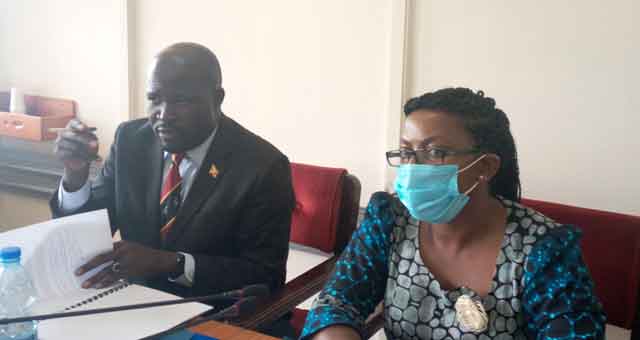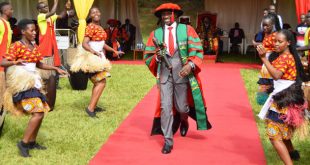
Kampala, Uganda | THE INDEPENDENT | The government has declined to abandon a policy requiring private broadcasters to provide free airtime for government messages.
This position was communicated by the Ministerof Information, Communication Technology and National Guidance Judith Nabakooba during an interaction with the Rural Broadcasters Association (RUBA) and the Uganda Media Owners Association (UMOA)
The parties had appeared before the Committeeon Information, Science and Communication Technology on Tuesday as Members of the committee chaired by the Dokolo North MP Paul Amoru embarked on investigating a petition to parliament by RUBA calling for the scrapping of free airtime to government.
The petition that was delivered to the speaker Rebecca Kadaga in July is calling for the scrapping of a policy that was approved in March 2014 requiring all private broadcasters to provide 1 hour of airtime every week for the dissemination of government content. It also requires the broadcasters to air national events like the budget speech and presidential addresses as well as play free jingles, announcements and DJ mentions.
The broadcasters who were represented before the ICT committee by the chairperson of RUBA Julius Tumusiime and the chairperson of UMOA Alex Birigwa have criticized the move by the Uganda Communications Commission to use the free broadcasting services to government as a condition for license provision.
Tumusiime told the committee that the Ministries and government agencies should budget for media buying instead of relying on free services which has financially affected the station owners negatively.
Paul Amoru asked the minister to justify whether this free airtime policy was still relevant six years down the road.
Nabakooba argued that the free airtime was necessary to ensure that the government interacts with the beneficiaries of public programs to assess performance and also use the stations as a mobilization tool.
Nabakooba justified the policy by quoting schedule 6 section 2(b) of the Uganda Communications Act which requires broadcasters and licensees to provide time for national functions and events.
She also argued that 1 hour of airtime a week out of 168 hours in a week translates into just 0.6% of total programming time available for stations. She noted that the policy had been a consensus between various stakeholders including the National Association of Broadcasters (NAB) and the UCC and therefore RUBA was bound by the agreement since it falls under NAB.
Tumusiime however countered by stating that the majority of upcountry radio stations barely make 20m shillings a month and yet the costs of running a station are close to 40m shillings, he said that given that the government is the biggest spender in the economy it would be only fair for the government to support the struggling radio stations instead of expecting free airtime.
Tumusiime accused government officials of using the free airtime slots to account for money that had been budgeted for media spend. He also castigated government officials for sometimes failing to turn up for scheduled government radio programs and yet advertisers who could have booked space have been turned away.
The chairperson of the committee Amoru asked him to provide proof of government officials failing to show up for scheduled programs so that the committee can have documented information to work with.
Amoru also asked the minister to inform the committee whether the ministry has an organized programme for information dissemination across the country which can be followed up for feedback. He said that this schedule can also be used to eliminate incidents where free airtime is used to account for budgeted funds.
********
URN
 The Independent Uganda: You get the Truth we Pay the Price
The Independent Uganda: You get the Truth we Pay the Price


